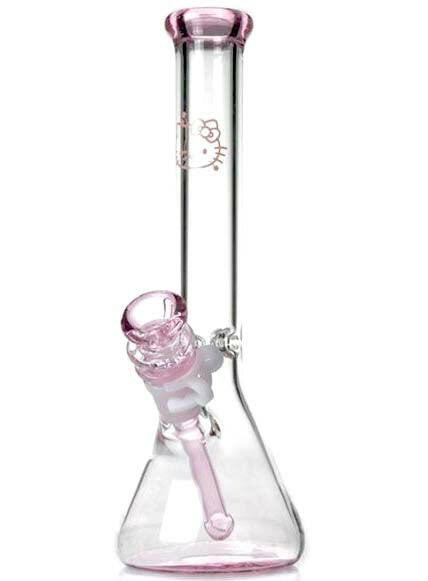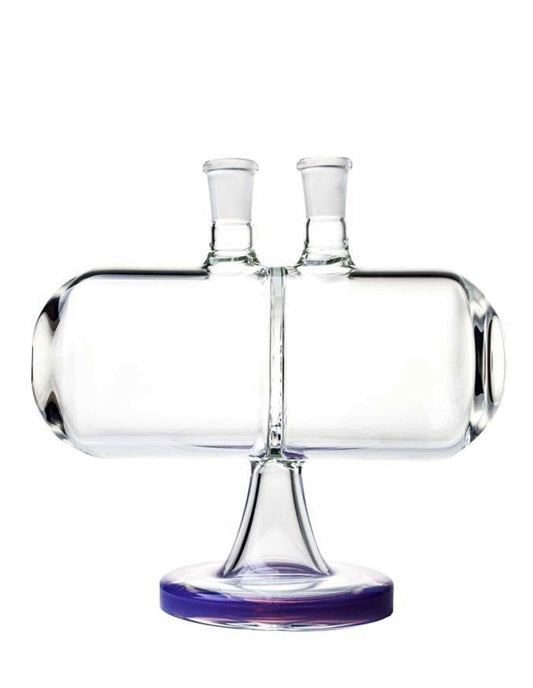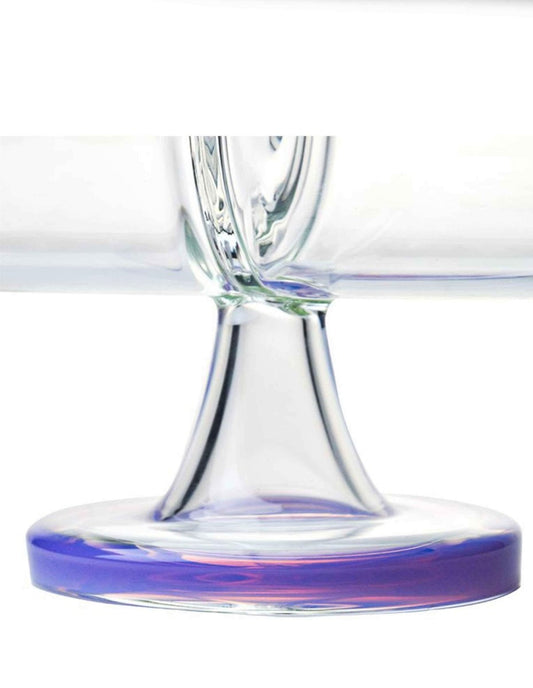THCA vs THC
21 Oct 2024
Cannabis is one of those plants that never ceases to fascinate, and for good reason. It's packed with a range of compounds that have intrigued scientists and sparked curiosity in users for decades. While most of us are familiar with **THC**—the compound responsible for that well-known “high”—there’s another player in the cannabis world that deserves some attention: **THCA** (tetrahydrocannabinolic acid).
Wait, what’s THCA, you ask? Well, it’s the raw form of THC, and even though it’s not as famous, it’s just as important. If you’re diving into the world of cannabis for medicinal purposes or even just to broaden your knowledge, understanding THCA and how it compares to THC is key. So, let’s roll up our sleeves and get into the nitty-gritty of what makes THCA tick and why it’s got its own set of benefits.
What Exactly is THCA? A Raw Deal
Here’s the scoop: **THCA** is a **non-psychoactive** compound that’s found in raw cannabis. You know those fresh, sticky buds that haven’t been heated or dried? They’re loaded with THCA, not THC. In fact, in its natural state, cannabis hardly contains any THC at all—it’s mostly THCA. But don’t worry, we’ll get to how that changes in a bit.
When you smoke, vape, or cook cannabis, you’re essentially putting the plant through a transformation process called **decarboxylation** (more on that soon). This heating process is what turns THCA into THC—the compound that gives you that high we all know about. In other words, if you’re munching on raw cannabis leaves or juicing them (yep, people do that), you’re mostly consuming THCA, not THC, and guess what? No psychoactive effects!
The Science-y Stuff: THCA vs. THC
If you’re into chemistry (or even if you’re not, stay with me), let’s talk about how these two compounds differ structurally. **THCA** has a carboxyl group attached to it, something THC doesn’t have. I know, it sounds super nerdy, but here’s why it matters: that extra carboxyl group is what keeps THCA from binding to the brain’s **CB1 receptors**—the same receptors THC binds to when it gets you high. Without that connection, there’s no psychoactive effect, meaning THCA won’t get you “lit.”
Essentially, THCA is like THC’s laid-back cousin who enjoys the chill life but doesn’t want to party. It’s larger than THC on a molecular level, and that little difference changes how it interacts with our bodies in significant ways.
Why THCA Won't Get You High
Let’s clear up a common misconception—just because it’s cannabis doesn’t mean it’ll get you high. Raw cannabis, which contains **THCA**, isn’t psychoactive, so you can’t expect the same effects you’d get from smoking a joint or hitting a vape. The reason is simple: **THCA doesn’t bind to the brain’s CB1 receptors** like THC does, so there’s no mind-altering experience.
If you’re ever tempted to nibble on some fresh cannabis leaves, rest assured—you won’t be soaring to the moon. That’s because the heat needed to turn THCA into THC hasn’t been applied yet. So whether you’re juicing it, making a salad with raw cannabis (hey, it’s a thing), or even blending it into smoothies, you’re staying in the sober lane.
Decarboxylation: The Magical Conversion
Now, let’s talk about **decarboxylation**—the process that flips the switch and turns THCA into THC. It’s like when you’re cooking: apply heat, and boom, you’ve transformed one thing into something entirely different. When you apply heat—whether by smoking, vaporizing, or even baking edibles—THCA loses that pesky carboxyl group, and voilà, THC is born.
But here’s the kicker: this transformation happens at specific temperatures, usually between **220°F to 240°F**. That’s why when you smoke cannabis, the high hits you almost instantly—because you’ve just decarboxylated your THCA into THC, and it’s now free to work its magic on your CB1 receptors.
THCA’s Health Benefits: More Than Just a Pretty Face
Sure, THCA won’t get you high, but does that mean it’s useless? Far from it. In fact, THCA is making waves in the wellness world for its **potential health benefits**. Here’s a quick rundown of what THCA might be bringing to the table:
1. **Anti-Inflammatory Powers**
If inflammation is the root of many health problems, THCA might just be the hero we’ve been looking for. Research suggests that THCA may help reduce inflammation by blocking certain enzymes that contribute to the process. This could make it particularly useful for conditions like arthritis or autoimmune disorders. Hey, anything that might keep inflammation in check is worth a second look, right?
2. **Neuroprotective Qualities**
When it comes to protecting your noggin, THCA is showing some real promise. Early research suggests that THCA could help protect brain cells from damage—a big deal for conditions like Alzheimer’s, Parkinson’s, or multiple sclerosis. While more studies are needed, this is definitely a cannabinoid to keep an eye on for neuroprotection.
3. **Nausea and Appetite Support**
Feeling queasy? THCA might have you covered. Preliminary studies suggest that it could help ease nausea and even stimulate appetite, which could be a game changer for people undergoing chemotherapy or dealing with conditions that suppress hunger, like HIV/AIDS.
4. **Pain Relief**
While most of the spotlight on pain relief goes to **THC** and **CBD**, there’s growing evidence that THCA might also have a role to play. Its anti-inflammatory properties could contribute to pain management, making it a potentially useful option for people dealing with chronic pain conditions.
5. **Antioxidant Action**
THCA may also serve as an antioxidant, helping to combat free radicals in the body. Free radicals are unstable molecules that can cause cellular damage and are linked to everything from aging to cancer. By acting as an antioxidant, THCA might help protect your body from oxidative stress and keep things running smoothly.
THCA vs. THC: Key Differences
Now that we’ve gotten to know THCA a bit better, how does it really stack up against its better-known counterpart, THC? Let’s look at a few key differences:
1. **Psychoactivity**
We’ve covered this one already, but it’s worth repeating: **THCA is non-psychoactive**. So if you’re looking for a high, you won’t find it here. THC, on the other hand, is all about that euphoric experience.
2. **Legal Status**
Here’s where things get a little tricky. Since **THCA** doesn’t get you high, it’s technically not considered a controlled substance in many places where cannabis is regulated. But there’s a catch: once it’s decarboxylated into **THC**, it’s subject to all the same legal restrictions. So, depending on where you are, handling raw cannabis could potentially lead to legal gray areas. Always check your local laws—no one likes unwanted surprises!
3. **Medicinal Use**
Both THC and THCA have medicinal benefits, but they’re often used for different purposes. **THC** is typically used to help with things like pain relief, sleep, nausea, and appetite stimulation—basically, all the things people love about the psychoactive effects. **THCA**, on the other hand, seems to be more useful for things like reducing inflammation, protecting the brain, and easing nausea, without the high.
4. **Consumption Methods**
Want to enjoy **THCA**? You’ll have to stick to raw cannabis—juices, salads, or smoothies. As soon as you introduce heat, you’re converting it into **THC**, so you’ll need to avoid smoking, vaping, or cooking if you want to keep things non-psychoactive.
THCA and the Future of Cannabis Medicine
So, what does the future hold for **THCA**? As the world becomes more open to the therapeutic potential of cannabis, THCA is starting to get its moment in the spotlight. More and more, people are seeking the medicinal benefits of cannabis without the psychoactive effects, and that’s where **THCA** shines. Whether in tinctures, oils, or raw plant material, THCA is starting to find its place in the cannabis market.
With more research, we may discover even more ways to use THCA for health and wellness. From neuroprotection to inflammation management, the possibilities are exciting. As more people embrace the holistic benefits of this compound, THCA is set to play a bigger role in cannabis medicine.
Final Thoughts
In a world dominated by talk of THC and CBD, it’s easy for **THCA** to get lost in the shuffle. But this under-the-radar compound deserves some serious attention. It may not get you high, but it offers a range of potential health benefits that make it a valuable addition to the world of cannabis.
Whether you’re looking for anti-inflammatory effects, neuroprotective benefits, or just an alternative way to incorporate cannabis into your wellness routine without the psychoactive effects, **THCA** could be a game changer. As research continues, we’re bound to learn even more about what this fascinating compound can do.
So, next time you hear someone talk about cannabis, remember—it’s not all about THC. **THCA** is making waves, and it
Wait, what’s THCA, you ask? Well, it’s the raw form of THC, and even though it’s not as famous, it’s just as important. If you’re diving into the world of cannabis for medicinal purposes or even just to broaden your knowledge, understanding THCA and how it compares to THC is key. So, let’s roll up our sleeves and get into the nitty-gritty of what makes THCA tick and why it’s got its own set of benefits.
What Exactly is THCA? A Raw Deal
Here’s the scoop: **THCA** is a **non-psychoactive** compound that’s found in raw cannabis. You know those fresh, sticky buds that haven’t been heated or dried? They’re loaded with THCA, not THC. In fact, in its natural state, cannabis hardly contains any THC at all—it’s mostly THCA. But don’t worry, we’ll get to how that changes in a bit.
When you smoke, vape, or cook cannabis, you’re essentially putting the plant through a transformation process called **decarboxylation** (more on that soon). This heating process is what turns THCA into THC—the compound that gives you that high we all know about. In other words, if you’re munching on raw cannabis leaves or juicing them (yep, people do that), you’re mostly consuming THCA, not THC, and guess what? No psychoactive effects!
The Science-y Stuff: THCA vs. THC
If you’re into chemistry (or even if you’re not, stay with me), let’s talk about how these two compounds differ structurally. **THCA** has a carboxyl group attached to it, something THC doesn’t have. I know, it sounds super nerdy, but here’s why it matters: that extra carboxyl group is what keeps THCA from binding to the brain’s **CB1 receptors**—the same receptors THC binds to when it gets you high. Without that connection, there’s no psychoactive effect, meaning THCA won’t get you “lit.”
Essentially, THCA is like THC’s laid-back cousin who enjoys the chill life but doesn’t want to party. It’s larger than THC on a molecular level, and that little difference changes how it interacts with our bodies in significant ways.
Why THCA Won't Get You High
Let’s clear up a common misconception—just because it’s cannabis doesn’t mean it’ll get you high. Raw cannabis, which contains **THCA**, isn’t psychoactive, so you can’t expect the same effects you’d get from smoking a joint or hitting a vape. The reason is simple: **THCA doesn’t bind to the brain’s CB1 receptors** like THC does, so there’s no mind-altering experience.
If you’re ever tempted to nibble on some fresh cannabis leaves, rest assured—you won’t be soaring to the moon. That’s because the heat needed to turn THCA into THC hasn’t been applied yet. So whether you’re juicing it, making a salad with raw cannabis (hey, it’s a thing), or even blending it into smoothies, you’re staying in the sober lane.
Decarboxylation: The Magical Conversion
Now, let’s talk about **decarboxylation**—the process that flips the switch and turns THCA into THC. It’s like when you’re cooking: apply heat, and boom, you’ve transformed one thing into something entirely different. When you apply heat—whether by smoking, vaporizing, or even baking edibles—THCA loses that pesky carboxyl group, and voilà, THC is born.
But here’s the kicker: this transformation happens at specific temperatures, usually between **220°F to 240°F**. That’s why when you smoke cannabis, the high hits you almost instantly—because you’ve just decarboxylated your THCA into THC, and it’s now free to work its magic on your CB1 receptors.
THCA’s Health Benefits: More Than Just a Pretty Face
Sure, THCA won’t get you high, but does that mean it’s useless? Far from it. In fact, THCA is making waves in the wellness world for its **potential health benefits**. Here’s a quick rundown of what THCA might be bringing to the table:
1. **Anti-Inflammatory Powers**
If inflammation is the root of many health problems, THCA might just be the hero we’ve been looking for. Research suggests that THCA may help reduce inflammation by blocking certain enzymes that contribute to the process. This could make it particularly useful for conditions like arthritis or autoimmune disorders. Hey, anything that might keep inflammation in check is worth a second look, right?
2. **Neuroprotective Qualities**
When it comes to protecting your noggin, THCA is showing some real promise. Early research suggests that THCA could help protect brain cells from damage—a big deal for conditions like Alzheimer’s, Parkinson’s, or multiple sclerosis. While more studies are needed, this is definitely a cannabinoid to keep an eye on for neuroprotection.
3. **Nausea and Appetite Support**
Feeling queasy? THCA might have you covered. Preliminary studies suggest that it could help ease nausea and even stimulate appetite, which could be a game changer for people undergoing chemotherapy or dealing with conditions that suppress hunger, like HIV/AIDS.
4. **Pain Relief**
While most of the spotlight on pain relief goes to **THC** and **CBD**, there’s growing evidence that THCA might also have a role to play. Its anti-inflammatory properties could contribute to pain management, making it a potentially useful option for people dealing with chronic pain conditions.
5. **Antioxidant Action**
THCA may also serve as an antioxidant, helping to combat free radicals in the body. Free radicals are unstable molecules that can cause cellular damage and are linked to everything from aging to cancer. By acting as an antioxidant, THCA might help protect your body from oxidative stress and keep things running smoothly.
THCA vs. THC: Key Differences
Now that we’ve gotten to know THCA a bit better, how does it really stack up against its better-known counterpart, THC? Let’s look at a few key differences:
1. **Psychoactivity**
We’ve covered this one already, but it’s worth repeating: **THCA is non-psychoactive**. So if you’re looking for a high, you won’t find it here. THC, on the other hand, is all about that euphoric experience.
2. **Legal Status**
Here’s where things get a little tricky. Since **THCA** doesn’t get you high, it’s technically not considered a controlled substance in many places where cannabis is regulated. But there’s a catch: once it’s decarboxylated into **THC**, it’s subject to all the same legal restrictions. So, depending on where you are, handling raw cannabis could potentially lead to legal gray areas. Always check your local laws—no one likes unwanted surprises!
3. **Medicinal Use**
Both THC and THCA have medicinal benefits, but they’re often used for different purposes. **THC** is typically used to help with things like pain relief, sleep, nausea, and appetite stimulation—basically, all the things people love about the psychoactive effects. **THCA**, on the other hand, seems to be more useful for things like reducing inflammation, protecting the brain, and easing nausea, without the high.
4. **Consumption Methods**
Want to enjoy **THCA**? You’ll have to stick to raw cannabis—juices, salads, or smoothies. As soon as you introduce heat, you’re converting it into **THC**, so you’ll need to avoid smoking, vaping, or cooking if you want to keep things non-psychoactive.
THCA and the Future of Cannabis Medicine
So, what does the future hold for **THCA**? As the world becomes more open to the therapeutic potential of cannabis, THCA is starting to get its moment in the spotlight. More and more, people are seeking the medicinal benefits of cannabis without the psychoactive effects, and that’s where **THCA** shines. Whether in tinctures, oils, or raw plant material, THCA is starting to find its place in the cannabis market.
With more research, we may discover even more ways to use THCA for health and wellness. From neuroprotection to inflammation management, the possibilities are exciting. As more people embrace the holistic benefits of this compound, THCA is set to play a bigger role in cannabis medicine.
Final Thoughts
In a world dominated by talk of THC and CBD, it’s easy for **THCA** to get lost in the shuffle. But this under-the-radar compound deserves some serious attention. It may not get you high, but it offers a range of potential health benefits that make it a valuable addition to the world of cannabis.
Whether you’re looking for anti-inflammatory effects, neuroprotective benefits, or just an alternative way to incorporate cannabis into your wellness routine without the psychoactive effects, **THCA** could be a game changer. As research continues, we’re bound to learn even more about what this fascinating compound can do.
So, next time you hear someone talk about cannabis, remember—it’s not all about THC. **THCA** is making waves, and it
Tags:







